Tropical Spark: A Photographic Journey
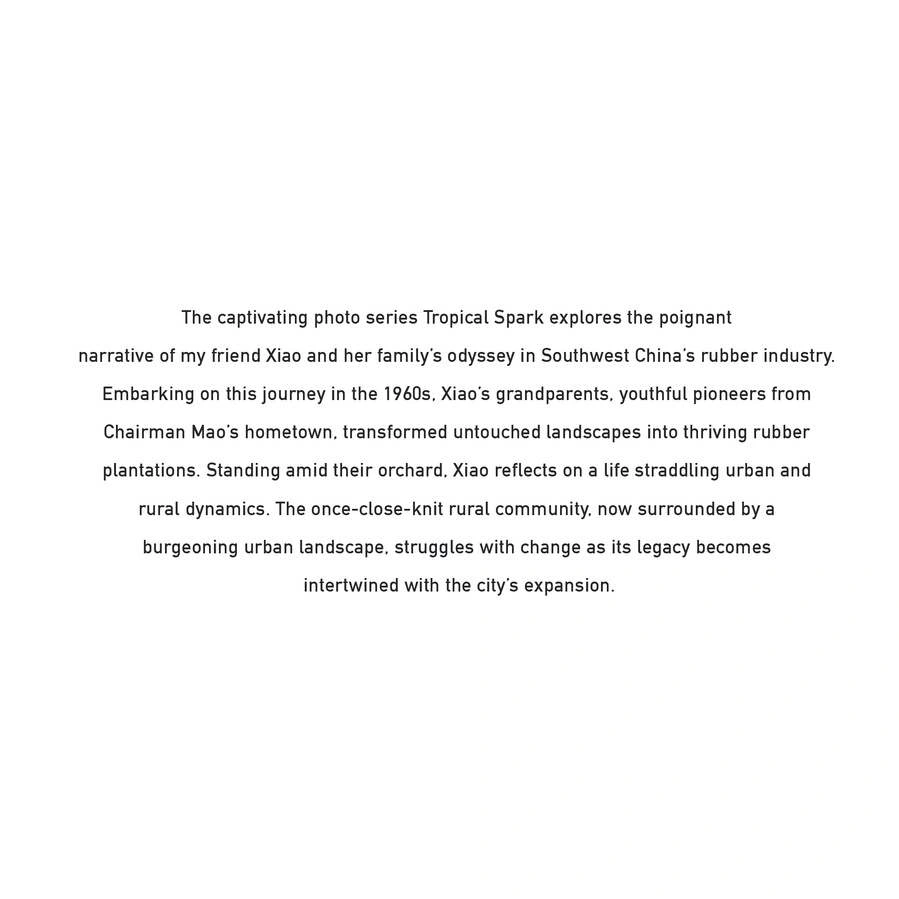
Short and extended artwork descriptions for artist Jia Hao's "Tropical Spark" series.
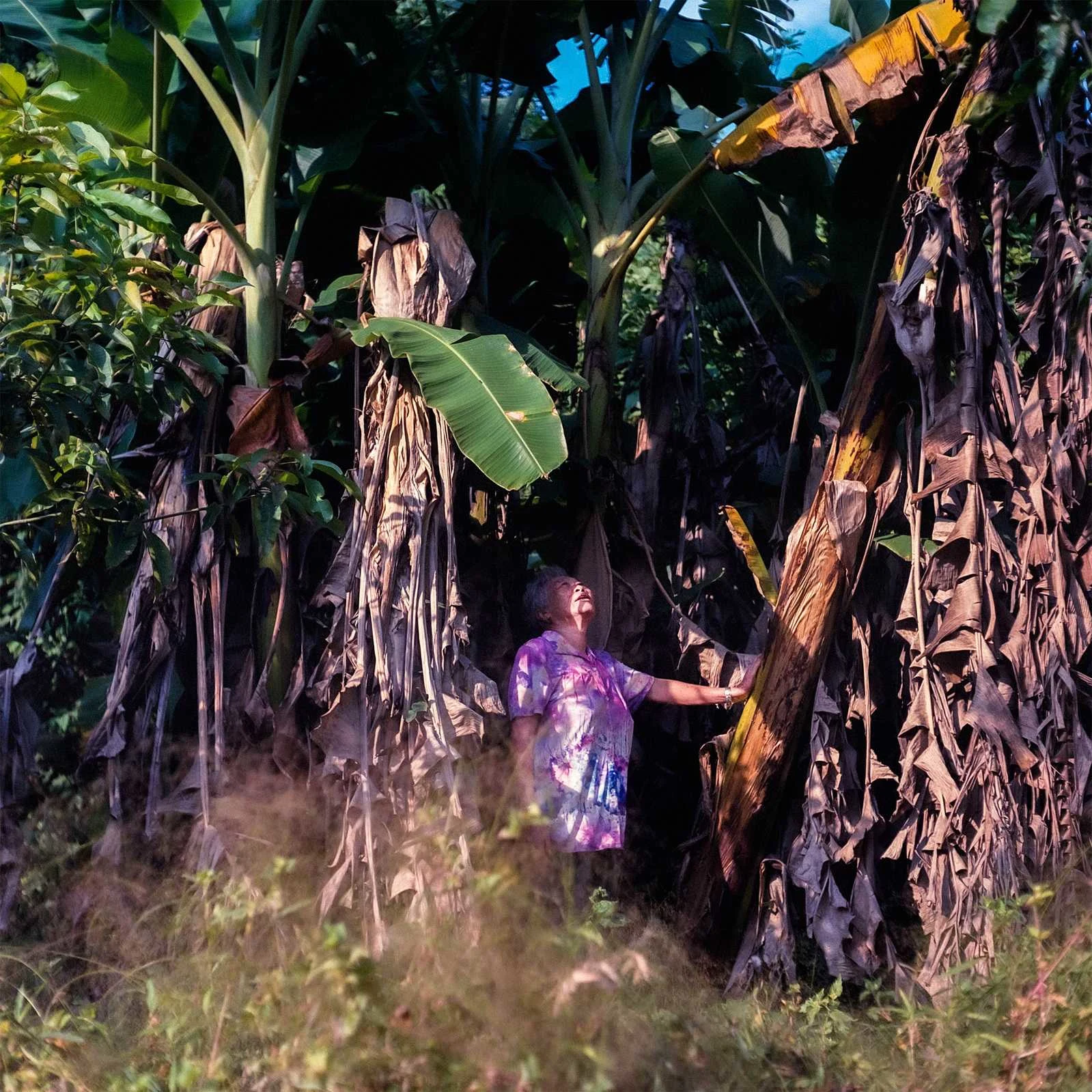
“Tropical Spark” is a photographic series that exposes the interconnectivity of the natural world, economic industry, and humanity to tell a tale of intergenerational perseverance. Each work illuminates a new facet of beauty and community amidst the ravages of profit-driven enterprises. The captivating series explores the poignant narrative of Xiao, a close friend, and her family’s odyssey in Southwest China’s rubber industry. Embarking on this journey in the 1960s, Xiao’s grandparents, youthful pioneers from Chairman Mao’s hometown, transformed untouched landscapes into thriving rubber plantations. Looking back, standing amid their orchard, Xiao reflects on a life straddling urban and rural dynamics. The once-close-knit rural community, now surrounded by a burgeoning urban landscape, struggles with change as its legacy becomes intertwined with the city’s expansion. “Tropical Spark” captures the timeless essence of a familial circle, marked by dedication, loss, and the resilient spirit that persists through generations.
In 1960, around 20,000 young adults from central China relocated to border towns to join the border construction efforts. They transformed barren mountains into fertile fields and vibrant rubber plantations, including Xishuangbanna within the Yunnan Province, where our story unfolds. These 20,000 young adults ventured into this untouched forest with a profound belief: "We come from Chairman Mao's hometown, and we must honor his legacy."
By the 1980s, the government incentivized local farmers, including ethnic minorities, to plant rubber to escape poverty. With China’s entry into the World Trade Organization (WTO) in 2001, rubber farmers accessed global markets, leading many to rise to the middle class. Currently, over one-fifth of Xishuangbanna is covered by rubber plantations, causing significant environmental issues such as topsoil erosion, watershed stress, and habitat loss for native animals. Rubber expansion has decreased biodiversity, altered river pH levels, and increased pesticide use. The Chinese government now plans to convert underperforming rubber plantations back to natural forests. Studies reveal a dramatic decline in forest cover and fog frequency due to rubber farming. Scientists advocate for mixed plantations to reduce environmental impacts while sustaining profits. Despite economic gains, the ecological damage is evident, prompting calls for more sustainable practices. The government’s recent initiatives aim to balance economic growth with environmental preservation, but challenges remain in implementing these changes effectively.
In addition to the environmental concerns, actions, and debates, the human components that were essential to the cultivation of rubber are also being affected. “Tropical Spark” provides an intimate and heartfelt story about my friend Xiao and her family's journey through the rollercoaster of rise and decline in the rubber industry that became central to their home. They devoted their lives with passion and unwavering commitment to this lush tropical rainforest land. Xiao's grandparents were among these courageous individuals who relocated to begin this endeavor, just 18 years old at the time. They embarked on a month-long journey to reach this pristine forest. Through their efforts and decades of tireless work, they gradually turned the virgin forests into thriving rubber farms.
"Now, we don't consider ourselves purely urban or rural," Xiao remarked about her family and upbringing. Her grandmother shared that they had called this tight-knit community 'the farm', which has been their home for over three decades, and they planned to rest here for eternity after more than 60 years of dedication. However, as the city expanded and flourished, residential buildings sprung up around their farm. In 2023, a company purchased her grandmother’s fishpond, filling it with soil to cultivate passion fruit, leaving an aura of uncertainty as the city continues to expand closer and closer to ‘the Farm’. Now, the only inheritance her grandparents possess to pass down to her granddaughter, Xiao, is the orchard itself. "I suppose young people these days may not value orchards as much, but it's the only legacy I can leave for her," her grandmother mused. Xiao's parents also worked on the rubber plantation, but tragically, both lost their lives due to a lack of access to proper medical care, hence why the family photograph only includes Xiao's grandparents and herself. ‘The Farm’ is more than a place and its resources, it symbolizes a timeless circle that has encompassed their lives for generations, and now threatens to be lost.
The wonder and majesty of ‘the Farm’ that have become so integral to Xiao and her family’s identity transform within my photographs. "Tropical Spark" employs a rich palette of saturated colors to capture the lushness of nature alongside the stark, neutral tones of industrialization. The series juxtaposes indoor and outdoor scenes, offering close-ups of foliage and unconventional portraits set against the evolving landscape. The images explore the fusion of rural and urban elements, highlighting the tension and harmony between them. Nature overgrows buildings, while construction cranes and technology loom over orchards and forests, visually narrating the encroachment of urbanization on the environment and their homes.
Drawing upon the investigations of my overarching artistic practice, which delves into the beauty of everyday life and overlooked narratives, this series offers a window into hidden lives and histories little known to the world beyond the borders of Southern China. The work explores the dichotomies that shape the way Xiao’s family navigates life, their understanding of identity, and the legacy they will leave behind. By highlighting the confrontations between rural and urban spaces on ‘the Farm’, the mundane nature of life is transformed, uncovering the profound beauty of the day-to-day in Xishuangbanna and the intricate stories that lie within.
"Tropical Spark" aims to illuminate communities that defy conventional urban and rural classifications, showcasing the interplay and conflict between tradition and modernity. The series tells rich, personal stories that are deeply rooted in cultural and national history and are now threatened by industrialization and globalization. By bringing these narratives to the forefront and allowing a glimpse into the lives of Xiao and her family on ‘the Farm’, I highlight the everyday lives pushed to the margins. A deepened appreciation for the resilience and beauty of these communities, as well as the complex dynamics at play, inspires reflection on the importance of preserving the unique cultural landscapes often overlooked.
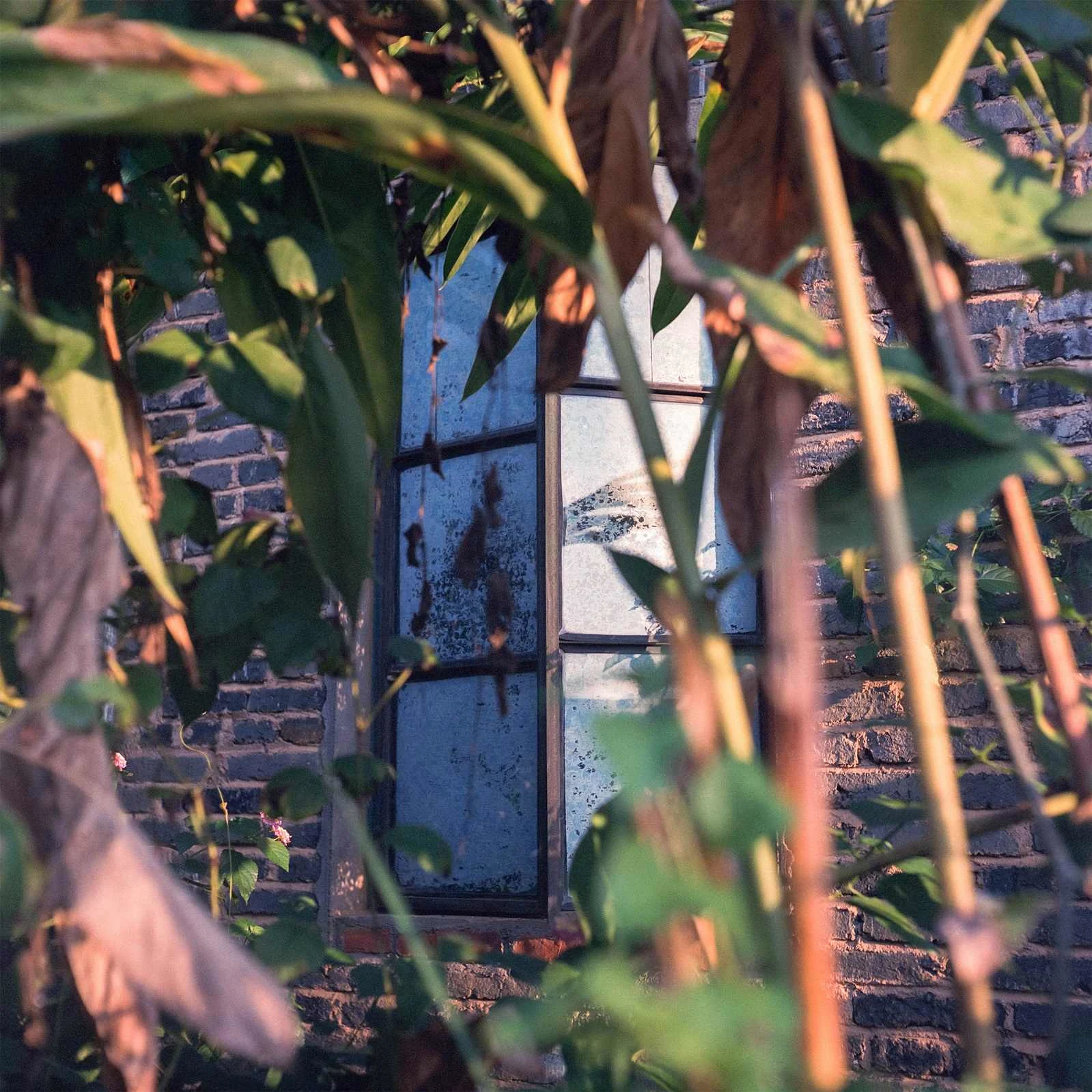
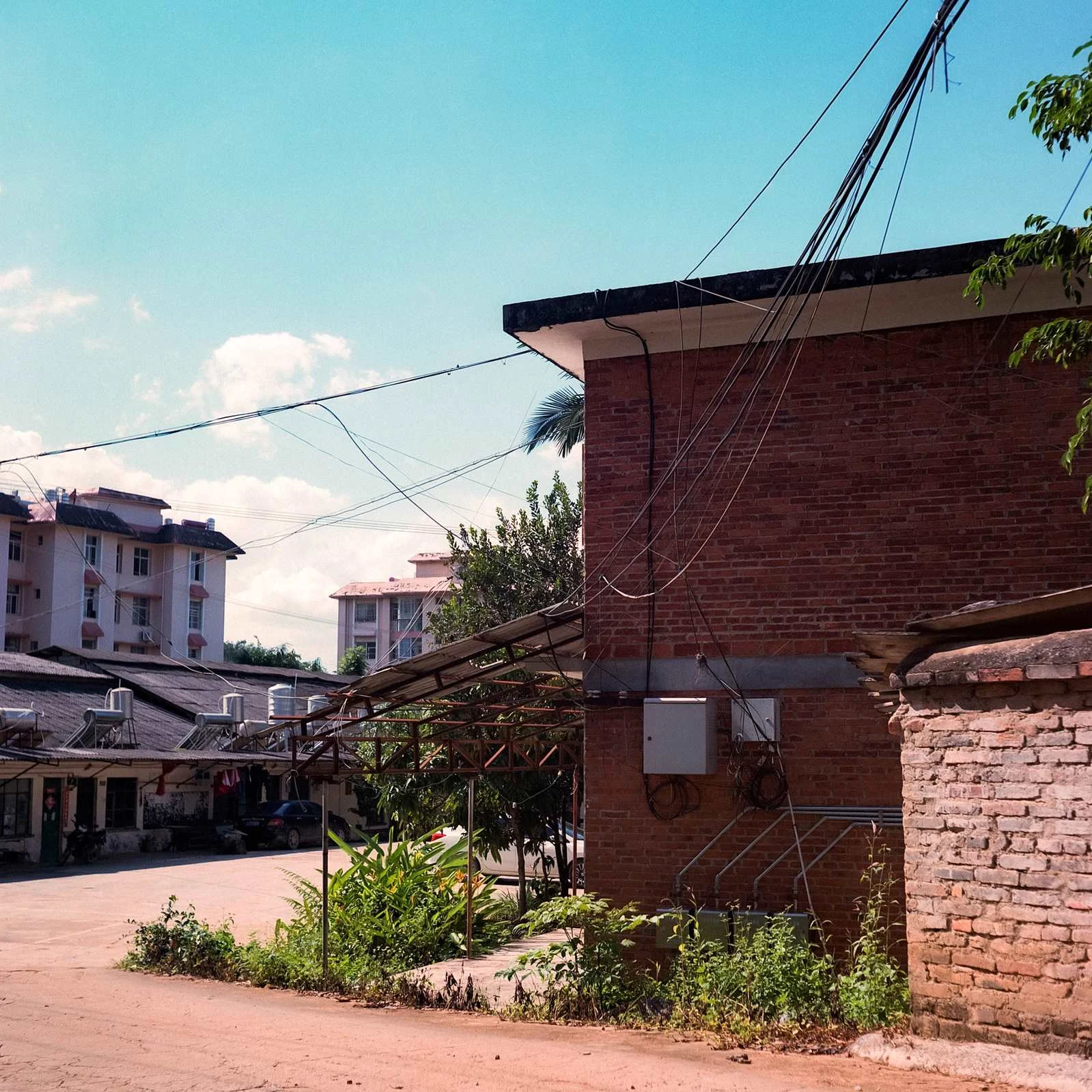
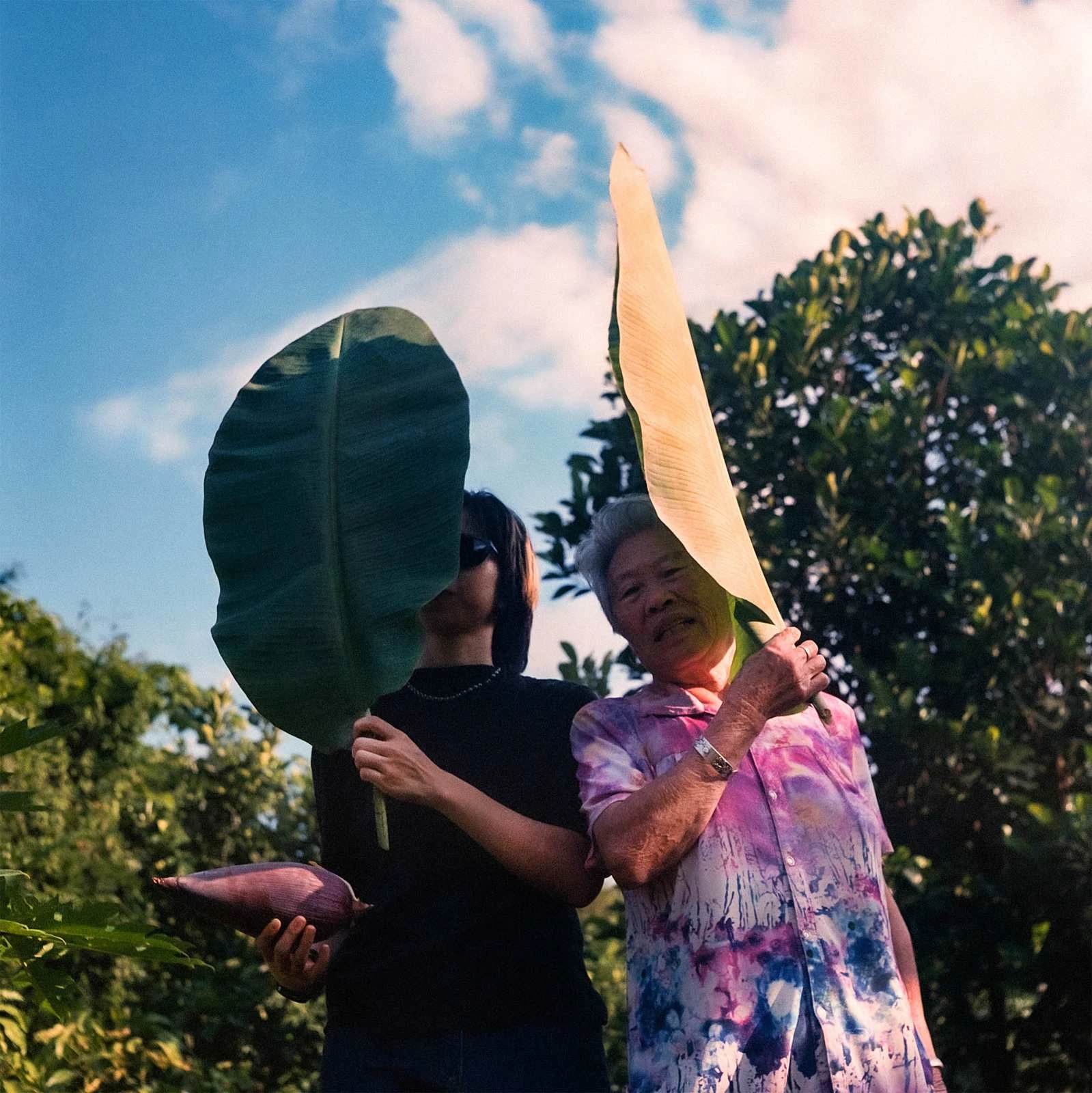
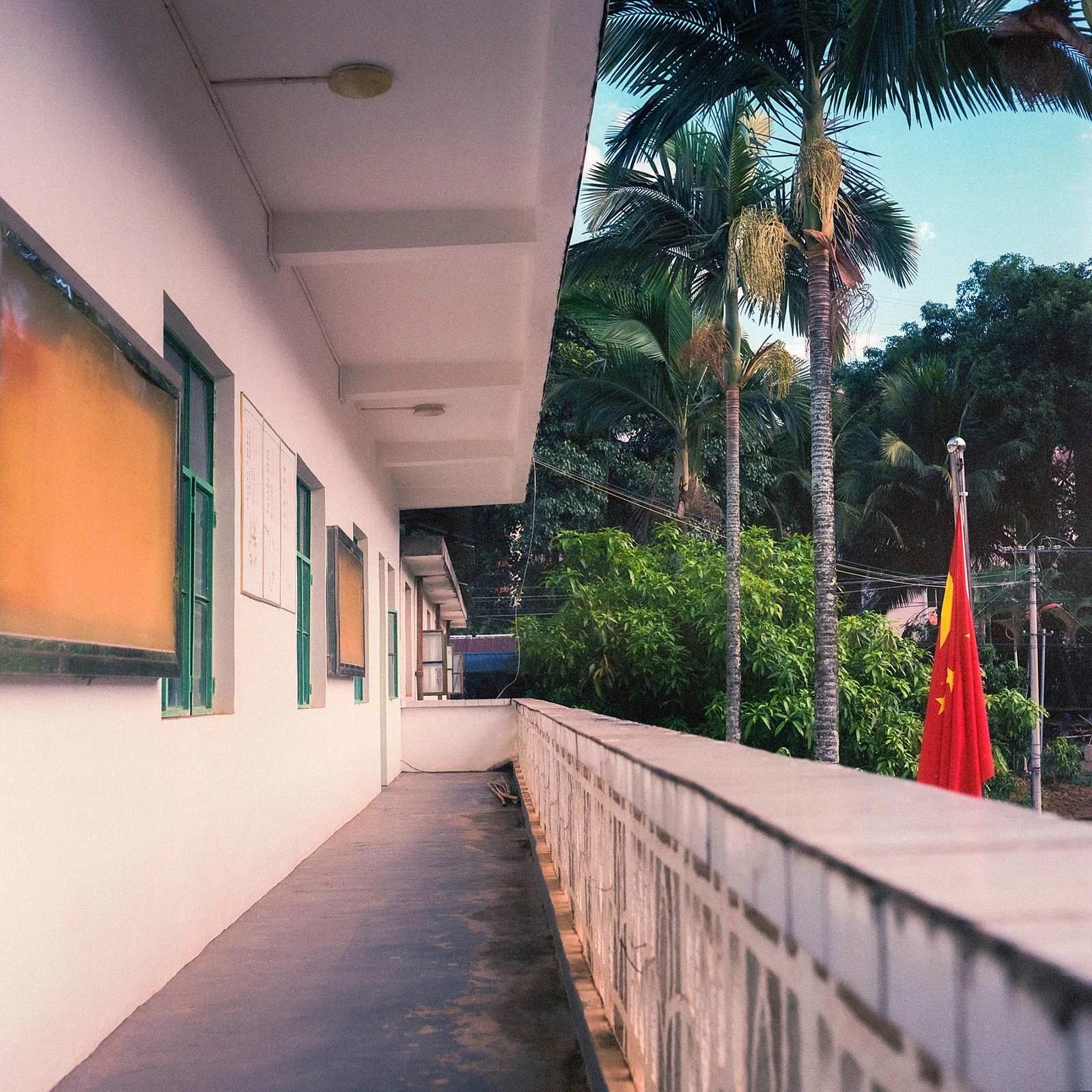
Like this project
Posted Apr 28, 2025
Brief and extended artwork description of Jia Hao's Tropical Spark photographic series exploring nature, industry, and family in China's rubber industry.
Likes
0
Views
3
Timeline
Jul 1, 2024 - Jul 9, 2024



![The Grandparents Storylab [Grant Proposal Narrative]](https://media.contra.com/image/upload/w_400,q_auto:good,c_fill/ttplgeyikd8gnstwgram.avif)

![The Art of Scotti Taylor [Artwork Descriptions]](https://media.contra.com/image/upload/w_400,q_auto:good,c_fill/zshfxoc082yyniiewtdf.avif)
![Andrea Mulcahy [Artist Bio]](https://media.contra.com/image/upload/w_400,q_auto:good,c_fill/dk10rp3vbtqoer6oej4o.avif)